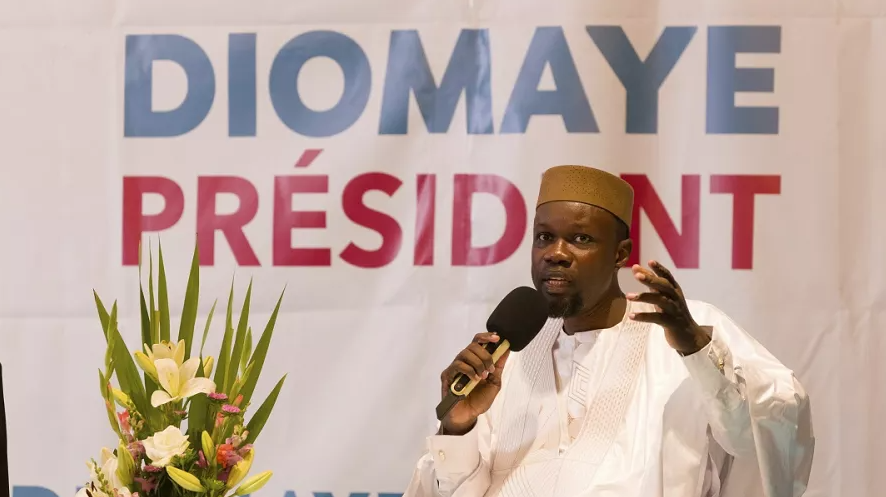Senegal’s Sonko wants to reassess: Ousmane Sonko, prime minister of Senegal, has predicted that rebalancing relations with Europe is imminent, putting Africa’s geopolitical landscape at a crossroads. In a recent talk, Sonko argued that the necessity of a paradigm change in historical antecedents is critical for the evolution of the continent.
The complex network of links between Europe and Africa is the central theme of Sonko’s speech. The future of this vital transcontinental relationship was the subject of a groundbreaking meeting that Sonko, as head of the PASTEF political party, organized. Jean-Luc Mélenchon, a former presidential candidate in France, brought fame to the event by attending as a prominent left-wing figure.
From Dakar’s esteemed Cheikh Anta Diop University, Sonko scathingly criticized France’s long-standing military presence in Africa, including Senegal. Concerning the effects on African governments’ strategic autonomy and national sovereignty, he posed important considerations about these deployments. Sonko compared France’s strong posture in 1966, when it firmly defended its sovereignty by closing all NATO bases on its territory. This precedent is highly relevant to the present day.
The French Ministry for Armed Forces, a monument to France’s lasting legacy in the region, reveals that over 400 soldiers are stationed across two camps near Dakar, charged with delivering regional military training. Beyond Senegal’s boundaries, Sonko’s fears about this military presence echo more considerable worries about Africa’s ability to declare independence in a geopolitical arena that is getting more complicated.
Importantly, Sonko clarified that his claims do not cast doubt on current defense agreements with other countries. This delicate approach highlights the complexities of diplomatic relations in the aftermath of colonization. As Senegal’s diplomatic history attests, renegotiating power dynamics with former colonial oppressors is a delicate dance. Taking back command of its defense policy with the 2010 reassertion of control over military bases was a watershed point in Senegal’s fight for independence.
Ultimately, Sonko’s forecast for Africa’s relationship with Europe captures a complex story beyond geopolitics to include more enormous ideas of independence, responsibility, and the past. The rebalancing of Africa’s connections with Europe becomes crucial in defining a future characterized by self-determination and mutual respect as the continent navigates the path of the 21st century.



















